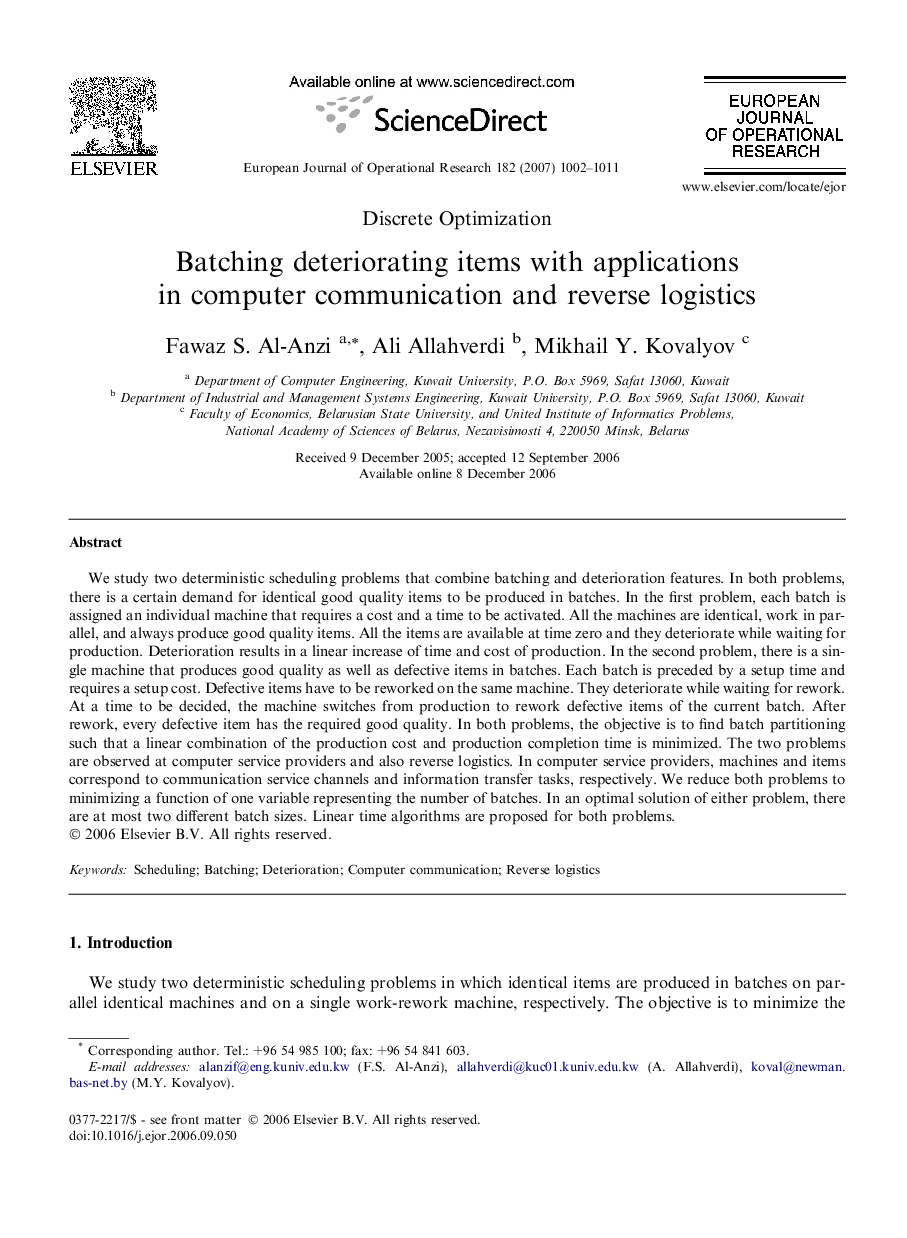| Article ID | Journal | Published Year | Pages | File Type |
|---|---|---|---|---|
| 482977 | European Journal of Operational Research | 2007 | 10 Pages |
We study two deterministic scheduling problems that combine batching and deterioration features. In both problems, there is a certain demand for identical good quality items to be produced in batches. In the first problem, each batch is assigned an individual machine that requires a cost and a time to be activated. All the machines are identical, work in parallel, and always produce good quality items. All the items are available at time zero and they deteriorate while waiting for production. Deterioration results in a linear increase of time and cost of production. In the second problem, there is a single machine that produces good quality as well as defective items in batches. Each batch is preceded by a setup time and requires a setup cost. Defective items have to be reworked on the same machine. They deteriorate while waiting for rework. At a time to be decided, the machine switches from production to rework defective items of the current batch. After rework, every defective item has the required good quality. In both problems, the objective is to find batch partitioning such that a linear combination of the production cost and production completion time is minimized. The two problems are observed at computer service providers and also reverse logistics. In computer service providers, machines and items correspond to communication service channels and information transfer tasks, respectively. We reduce both problems to minimizing a function of one variable representing the number of batches. In an optimal solution of either problem, there are at most two different batch sizes. Linear time algorithms are proposed for both problems.
